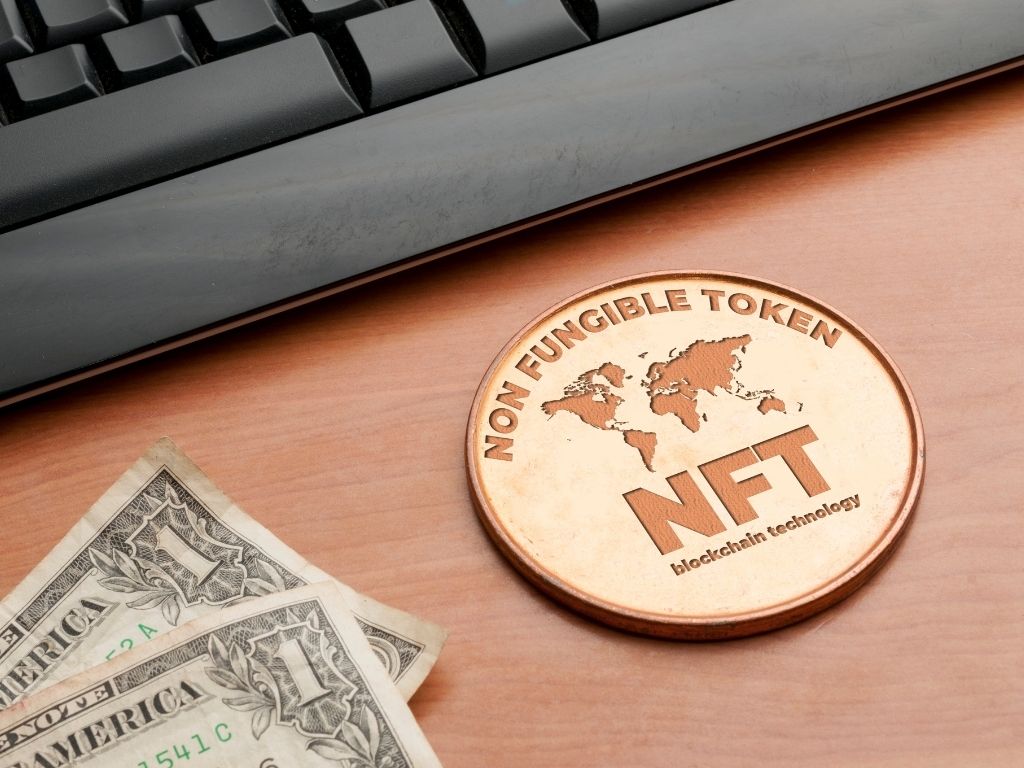The Amazing Evolution of Digital Identity Verification Through NFTs
Digital identity verification is changing rapidly, especially with the rise of Non-Fungible Tokens (NFTs). These digital assets are not just for art or collectibles; they are paving the way for a new, secure, and user-friendly method of managing personal identities online. This article explores how NFTs are transforming identity verification by providing more control, security, and efficiency for users.
Key Takeaways
- NFTs allow users to manage their own digital identities without needing central authorities.
- Once data is on the blockchain, it can’t be changed, making it secure and trustworthy.
- Users can decide who sees their information, giving them control over their privacy.
- NFTs can work across different platforms, making it easier to use your identity anywhere.
- These tokens can represent important documents, making verification faster and safer.
Decentralized Identity Verification with NFTs
In the digital age, decentralized identity verification is becoming essential. NFTs, or Non-Fungible Tokens, play a crucial role in this transformation. They help eliminate the need for centralized authorities, allowing individuals to manage their own identities securely.
Eliminating Centralized Authorities
- Empowerment: Users gain control over their personal information.
- Reduced Risk: Less reliance on organizations that can be hacked or mismanaged.
- Direct Verification: Individuals can verify their identities without needing a middleman.
Enhancing Privacy and Security
NFTs enhance privacy by allowing users to share only the information they choose. This selective sharing means that sensitive data is kept safe. Security is also improved because the unique nature of NFTs makes them hard to forge or alter.
Streamlining KYC Processes
Know Your Customer (KYC) processes can be made faster and more efficient with NFTs. By using these tokens, businesses can quickly verify identities without lengthy paperwork. This not only saves time but also reduces costs associated with traditional methods.
The shift to decentralized identity verification represents a significant change in how we think about personal information and security.
In summary, decentralized identity verification through NFTs is reshaping how we manage our identities online. It offers a more secure, private, and efficient way to verify who we are, paving the way for a future where individuals have greater control over their digital lives.
Immutability and Security in NFT-Based Digital Identities
Ensuring Data Integrity
Once identity information is recorded on the blockchain, it becomes unchangeable. This means that the data cannot be altered or deleted, which adds a strong layer of trust to digital identities. The permanence of this data is crucial for users who want to ensure their identity remains intact.
Cryptographic Techniques for Protection
NFTs use advanced cryptographic methods to keep identity data safe. This ensures that sensitive information stays private and is only accessible to those who are allowed to see it. Here are some key points about this security:
- Data Encryption: Protects information from unauthorized access.
- Access Control: Only specific users can view or modify data.
- Audit Trails: Keeps a record of who accessed the data and when.
Resilience Against Identity Theft
The blockchain’s unchangeable nature helps prevent identity theft. Since the data is securely stored and cannot be tampered with, it becomes much harder for fraudsters to steal or misuse someone’s identity. This makes NFT-based identities a strong defense against fraud.
The integration of NFTs into identity systems represents a significant step toward a more secure and user-friendly digital identity landscape.
In summary, the combination of immutability and cryptographic security in NFT-based digital identities not only protects users but also enhances trust in digital interactions. This is essential as we move towards a more digital world.
User Control and Consent in NFT-Based Identity Systems
Empowering Users with Ownership
NFTs give people real ownership of their digital identities. This means individuals can manage their own information without relying on big companies. By using blockchain, users can keep their data safe and decide who gets to see it.
Selective Information Sharing
With NFT-based systems, users can choose what information to share. Here are some benefits:
- Control over personal data
- Share only what’s needed
- Maintain privacy while interacting online
Managing Identity Tokens
Managing identity tokens is crucial for security. Users can:
- Store their identity securely as NFTs.
- Easily transfer their identity across different platforms.
- Keep track of who has access to their information.
In a world where data breaches are common, NFT-based identity systems offer a way to keep personal information safe and private.
By giving users control and consent, NFT systems are changing how we think about digital identity.
Interoperability and Cross-Platform Integration
Seamless Integration Across Platforms
NFTs allow users to connect their digital identities across various platforms. This means that individuals can use their identities in different applications without needing to create new accounts each time. This creates a more unified experience for users.
Supporting Cross-Border Transactions
With NFTs, people can easily manage their identities across borders. This is especially important for global transactions, where identity verification is crucial. By using NFTs, users can ensure their identities are recognized everywhere.
Creating a Unified Digital Ecosystem
NFTs help build a digital ecosystem where identities are portable. This means that users can take their digital identities with them, making it easier to interact with different services. Here are some benefits of this integration:
- Consistency: Users have the same identity across platforms.
- Convenience: No need to remember multiple passwords.
- Security: Enhanced protection against identity theft.
The future of digital identity lies in the ability to connect seamlessly across platforms, ensuring that users have control over their information.
In summary, the integration of NFTs into identity systems is a game-changer. It allows for a more connected and secure digital experience, where users can manage their identities effortlessly across various platforms.
Tokenizing Identity Attributes with NFTs
Transforming Identity Attributes into Digital Assets
NFTs allow us to turn specific parts of our identity into unique digital assets. This means things like educational degrees or job certifications can be represented as NFTs. This transformation enhances security and makes verification easier.
Establishing Provenance and Authenticity
When identity attributes are tokenized, it becomes easier to prove their authenticity. For example, if someone has an NFT representing their diploma, it can be verified without needing to contact the school. This process helps in building trust in digital identities.
Verified Credentials as NFTs
Traditional identity documents can be converted into NFTs. This includes:
- Passports
- Driver’s licenses
- Academic certificates
By doing this, we create a secure and tamper-proof way to verify identities.
Tokenizing identity attributes not only secures personal information but also empowers individuals to control their own data.
In summary, the use of NFTs in identity verification is a game-changer. It allows for better security, easier verification, and gives users more control over their personal information. As we move forward, the potential for NFTs in digital identity will only grow, making it an exciting area to watch.
Future-Proofing Digital Identity Solutions with NFTs
As we look ahead, the integration of NFTs into digital identity systems is set to revolutionize how we manage our identities online. NFTs provide a secure and flexible way to prove who we are in the digital world.
Adapting to Technological Advances
- Continuous Improvement: NFT technology is evolving, which means identity systems can adapt to new security measures and features.
- User-Friendly Interfaces: Future systems will focus on making it easy for everyone to use their digital identities.
- Collaboration: Governments and tech companies need to work together to create standards for these systems.
Ensuring Global Recognition
- Standardization: Creating universal standards will help people use their digital identities anywhere in the world.
- Cross-Border Transactions: NFTs can facilitate easier transactions across different countries, making global commerce smoother.
- Building Trust: As more people understand and use NFTs, trust in these systems will grow.
Facilitating Identity Recovery and Backup
- Secure Backups: NFTs can help users securely back up their identities, ensuring they can recover them if lost.
- User Control: Individuals will have the power to manage their identity data, reducing the risk of loss.
- Emergency Access: In critical situations, NFTs can provide quick access to identity verification, enhancing safety.
The future of digital identity is bright with NFTs, as they promise to empower users while ensuring security and privacy.
In summary, the evolution of digital identity through NFTs is not just about technology; it’s about creating a system that is secure, user-friendly, and adaptable to future needs. By focusing on these key areas, we can build a robust framework for digital identities that stands the test of time.
Highlights: 1. Secure and flexible identity management 2. Global recognition through standardization 3. User control over identity data.
Challenges and Opportunities in NFT-Based Digital Identity
Addressing Privacy and Compliance Issues
The rise of NFT-based digital identities brings new challenges related to privacy and compliance. Users must ensure that their personal data is protected while adhering to regulations. This can be tricky, as laws vary by region. Key points include:
- Understanding local regulations.
- Implementing robust data protection measures.
- Ensuring user consent for data sharing.
Scalability and Cost Considerations
Another challenge is the scalability of NFT systems. As more users adopt these technologies, the infrastructure must support increased demand. Considerations include:
- Cost of transactions: High fees can deter users.
- Network congestion: Slower processing times can frustrate users.
- Resource allocation: Efficient use of resources is essential for growth.
User Adoption and Education
For NFT-based identity systems to succeed, users need to understand how they work. Education is crucial to encourage adoption. Strategies include:
- Offering tutorials and guides.
- Hosting community workshops.
- Providing clear benefits of using NFTs for identity.
The future of NFTs in digital identity is bright, but addressing these challenges is essential for widespread acceptance and success.
In summary, while there are significant challenges in implementing NFT-based digital identities, there are also vast opportunities for innovation and improvement. By focusing on privacy, scalability, and user education, we can create a more secure and efficient digital identity landscape.
Conclusion
In summary, using Non-Fungible Tokens (NFTs) in identity systems marks a significant change towards a safer, more user-friendly digital world. As we explore this new landscape, a few important points stand out. NFT-based identity systems give people more control over their online identities, moving away from traditional authorities. By turning regular identity documents into NFTs, we boost the security and trustworthiness of these credentials, creating a reliable way to verify identities.
Moreover, these systems allow users to share only the information they choose, which helps protect their privacy. The use of NFTs also secures sensitive data, making it harder for hackers to access. With the ability to work across different platforms, NFT identity systems offer a smooth experience for users, making it easier to manage their digital identities.
As we look to the future, NFTs can help governments and organizations encourage positive actions and community involvement. They can also improve important areas like voting and emergency responses, making processes more transparent and efficient. Overall, the rise of NFT-based identity systems promises a future where individuals have true ownership and control over their digital identities.
Frequently Asked Questions
What are NFTs and how do they relate to digital identity?
NFTs, or Non-Fungible Tokens, are unique digital items stored on a blockchain. They can represent personal information, like education or work credentials, helping people prove their identity online.
How do NFTs improve privacy and security for users?
NFTs give users more control over their personal data. They can choose who sees their information, and since NFTs are stored on a secure blockchain, it’s much harder for hackers to steal that data.
Can NFTs help make the process of verifying identities faster?
Yes! NFTs can speed up identity checks by allowing companies to quickly verify someone’s credentials without needing a lot of paperwork or middlemen.
Are NFTs usable across different platforms?
Absolutely. NFTs can work on various online platforms, making it easy for users to share their identity information wherever needed.
What challenges do NFTs face in digital identity verification?
Some challenges include privacy concerns, the cost of using NFTs, and getting more people to understand and use this technology.
How might NFTs shape the future of digital identity?
In the future, NFTs could serve as secure digital IDs, giving people control over their identity while making online interactions safer and more trustworthy.
Stay informed with daily updates from Blockchain Magazine on Google News. Click here to follow us and mark as favorite: [Blockchain Magazine on Google News].
Get Blockchain Insights In Inbox
Stay ahead of the curve with expert analysis and market updates.
latest from tech
Disclaimer: Any post shared by a third-party agency are sponsored and Blockchain Magazine has no views on any such posts. The views and opinions expressed in this post are those of the clients and do not necessarily reflect the official policy or position of Blockchain Magazine. The information provided in this post is for informational purposes only and should not be considered as financial, investment, or professional advice. Blockchain Magazine does not endorse or promote any specific products, services, or companies mentioned in this posts. Readers are encouraged to conduct their own research and consult with a qualified professional before making any financial decisions. The featured image used is just a creative depiction of the title and it does not intend to hurt sentiments of any person or institution. If it hurts anyone sentiments, please do not hesitate to reach out to Blockchain Magazine.

 Bitcoin
Bitcoin  Ethereum
Ethereum  XRP
XRP  Tether
Tether  Solana
Solana  USDC
USDC  Dogecoin
Dogecoin  Cardano
Cardano  Lido Staked Ether
Lido Staked Ether  TRON
TRON  Chainlink
Chainlink  Wrapped Bitcoin
Wrapped Bitcoin  Wrapped stETH
Wrapped stETH  Avalanche
Avalanche  Sui
Sui  Stellar
Stellar  Hedera
Hedera  Toncoin
Toncoin  Shiba Inu
Shiba Inu  LEO Token
LEO Token  Hyperliquid
Hyperliquid  Litecoin
Litecoin  Bitget Token
Bitget Token  WETH
WETH  Polkadot
Polkadot  USDS
USDS  Bitcoin Cash
Bitcoin Cash  Ethena USDe
Ethena USDe  Wrapped eETH
Wrapped eETH  Uniswap
Uniswap  MANTRA
MANTRA  Ondo
Ondo  Pepe
Pepe  Aave
Aave  Monero
Monero  NEAR Protocol
NEAR Protocol  WhiteBIT Coin
WhiteBIT Coin  Mantle
Mantle  Official Trump
Official Trump  Aptos
Aptos  Internet Computer
Internet Computer  Dai
Dai  Ethereum Classic
Ethereum Classic  Bittensor
Bittensor  Cronos
Cronos  OKB
OKB  POL (ex-MATIC)
POL (ex-MATIC)  Gate
Gate 




